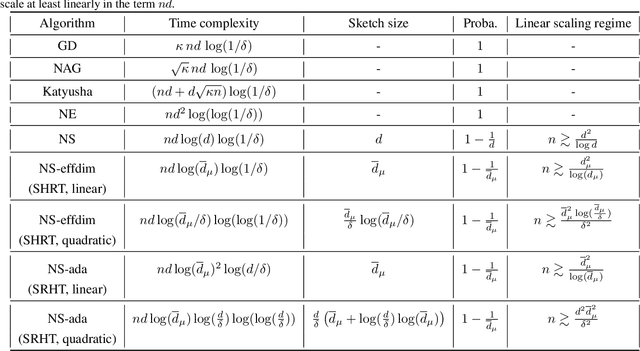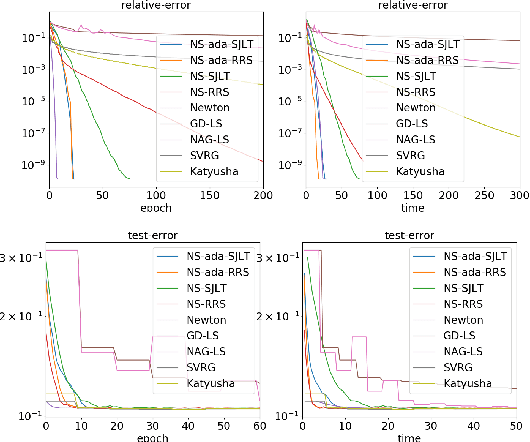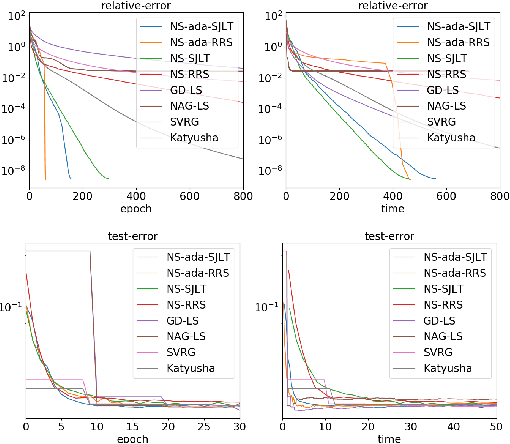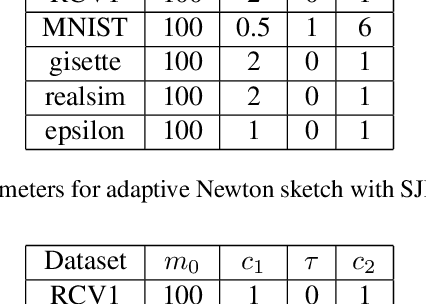Adaptive Newton Sketch: Linear-time Optimization with Quadratic Convergence and Effective Hessian Dimensionality
Paper and Code
May 15, 2021



We propose a randomized algorithm with quadratic convergence rate for convex optimization problems with a self-concordant, composite, strongly convex objective function. Our method is based on performing an approximate Newton step using a random projection of the Hessian. Our first contribution is to show that, at each iteration, the embedding dimension (or sketch size) can be as small as the effective dimension of the Hessian matrix. Leveraging this novel fundamental result, we design an algorithm with a sketch size proportional to the effective dimension and which exhibits a quadratic rate of convergence. This result dramatically improves on the classical linear-quadratic convergence rates of state-of-the-art sub-sampled Newton methods. However, in most practical cases, the effective dimension is not known beforehand, and this raises the question of how to pick a sketch size as small as the effective dimension while preserving a quadratic convergence rate. Our second and main contribution is thus to propose an adaptive sketch size algorithm with quadratic convergence rate and which does not require prior knowledge or estimation of the effective dimension: at each iteration, it starts with a small sketch size, and increases it until quadratic progress is achieved. Importantly, we show that the embedding dimension remains proportional to the effective dimension throughout the entire path and that our method achieves state-of-the-art computational complexity for solving convex optimization programs with a strongly convex component.
 Add to Chrome
Add to Chrome Add to Firefox
Add to Firefox Add to Edge
Add to Edge